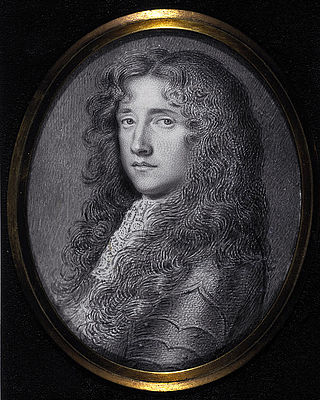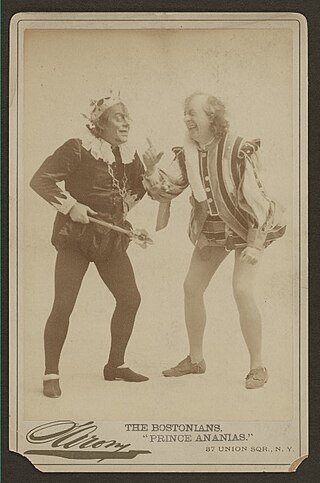"Heart of Oak" is the official march of the Royal Navy. It is also the official march of several Commonwealth navies, including the Royal Canadian Navy and the Royal New Zealand Navy. It was the official march of the Royal Australian Navy, but has now been replaced by the new march, "Royal Australian Navy".

Wiltshire is a ceremonial county in South West England. It borders Gloucestershire to the north, Oxfordshire and Berkshire to the east, Hampshire to the south-east, Dorset to the south, and Somerset to the west. The largest settlement is Swindon, and Trowbridge is the county town.

Bonnie Dundee is the title of a poem and a song written by Walter Scott in 1825 in honour of John Graham, 7th Laird of Claverhouse, who was created 1st Viscount Dundee in November 1688, then in 1689 led a Jacobite rising in which he died, becoming a Jacobite hero.
Stelios Kazantzidis was a one of the most prominent Greek singer of Pontian and Asia Minor roots. A leading singer of Greek popular music, or Laïkó, he collaborated with many of Greece's foremost composers.

Kyriaki Papadopoulou, known by her stage name Marinella, is a Greek singer whose career has spanned several decades. She has sung professionally since 1957. Since the beginning of her career, she has released 66 solo albums and has been featured on albums by other musicians. She still sings today and stands out for the range of her voice
"It's a Long Way to Tipperary" is an English music hall song first performed in 1912 by Jack Judge, and written by Judge and Harry Williams, though authorship of the song has long been disputed.
"For He's a Jolly Good Fellow" is a popular song that is sung to congratulate a person on a significant event, such as a promotion, a birthday, a wedding, a retirement, a wedding anniversary, the birth of a child, or the winning of a championship sporting event. The melody originates from the French song "Malbrough s'en va-t-en guerre".
"Blaydon Races" is a Geordie folk song, the words for which were written in the 19th century by Geordie Ridley, in a style deriving from music hall. Ridley's words were set to an existing American tune labelled "Brighton" in early publications of Ridley's song, which refers to an American song called "On the Road to Brighton". It is frequently sung by supporters of Newcastle United Football Club, Newcastle Falcons rugby club, and Durham County Cricket Club.

Salisbury is a constituency represented in the House of Commons of the UK Parliament since 2010 by John Glen of the Conservative Party.
"Sussex by the Sea" is a song written in 1907 by William Ward-Higgs, often considered to be the unofficial county anthem of Sussex. It became well known throughout Sussex and is regularly sung at celebrations throughout the county. It can be heard during many sporting events in the county, during the Sussex bonfire celebrations and it is played by marching bands and Morris dancers across Sussex. It is the adopted song of Brighton & Hove Albion Football Club, Sussex Division Royal Naval Reserve, Sussex Association of Naval Officers and Sussex County Cricket Club.
"Deck the Halls” is a traditional Christmas carol. The melody is Welsh, dating back to the sixteenth century, and belongs to a winter carol, "Nos Galan", while the English lyrics, written by the Scottish musician Thomas Oliphant, date to 1862.

Prince Ananias was the first operetta composed by Victor Herbert. The libretto is by Francis Neilson. It was first produced by a troupe called "The Bostonians" at The Broadway Theatre on November 20, 1894, directed by Jerome Sykes. It remained in their repertoire for three seasons and was given more than 300 performances in all. A modest success at first, it did well on tour.
"The Lincolnshire Poacher" is a traditional English folk song associated with the county of Lincolnshire, and deals with the joys of poaching. It is considered to be the unofficial county anthem of Lincolnshire. It is catalogued as Roud Folk Song Index No. 299.

"There Was a Jolly Miller Once" is a traditional folk song from the Chester area in northwest England. It is often titled "The Miller of the Dee" or "The Jolly Miller".

"Michael, Row the Boat Ashore" is a traditional African-American spiritual first noted during the American Civil War at St. Helena Island, one of the Sea Islands of South Carolina. The best-known recording was released in 1960 by the U.S. folk band The Highwaymen; that version briefly reached number-one hit status as a single.
The song "All Around my Hat" is of nineteenth-century English origin. In an early version, dating from the 1820s, a Cockney costermonger vowed to be true to his fiancée, who had been sentenced to seven years' transportation to Australia for theft and to mourn his loss of her by wearing green willow sprigs in his hatband for "a twelve-month and a day", the willow being a traditional symbol of mourning. The song was made famous by Steeleye Span in 1975, whose rendition may have been based on a more traditional version sung by John Langstaff.

"Mama Tried" is a song written and recorded by American country music artist Merle Haggard and The Strangers. It was released in July 1968 as the first single and title track from the album Mama Tried. The song became one of the cornerstone songs of his career. It won the Grammy Hall of Fame Award in 1999, and was selected for preservation in the National Recording Registry due to its "cultural, historic, or artistic significance" on March 23, 2016, just 14 days before Haggard's death. In 2021, it was ranked at #376 on Rolling Stone's "500 Greatest Songs of All Time".
Adamantia Stamatopoulou, known as Mando, is a Greek singer. She was born and raised in Athens by her jazz pianist father, Nikos Stamatopoulos and a classic soprano opera mother, Mary Apergi.

The Whimple Wassail is an orchard-visiting wassail ceremony which takes place in the Devon village of Whimple annually every Old Twelfth Night. The Whimple Wassail was first mentioned by the Victorian author and folklorist Reverend Sabine Baring-Gould in his book Devon Characters and Strange Events.
"The Lochmaben Harper" or "The Blind Harper" is a traditional British Folk ballad and is one of the ballads collected by Francis Child in The English and Scottish Popular Ballads (1882–1898).